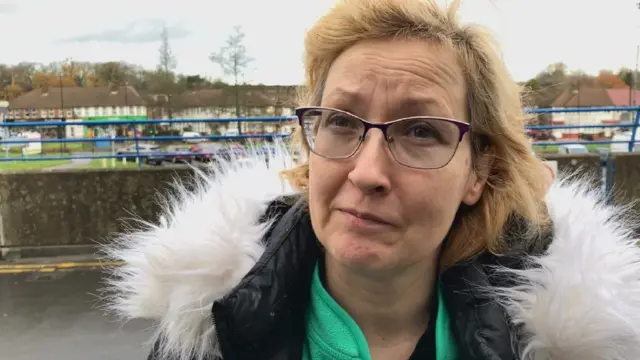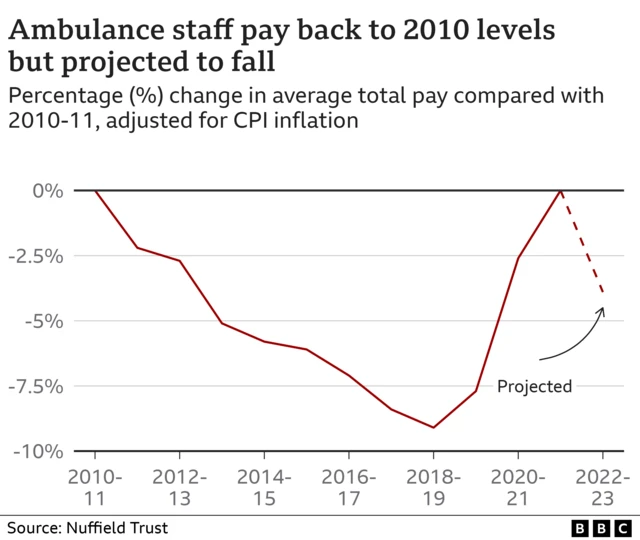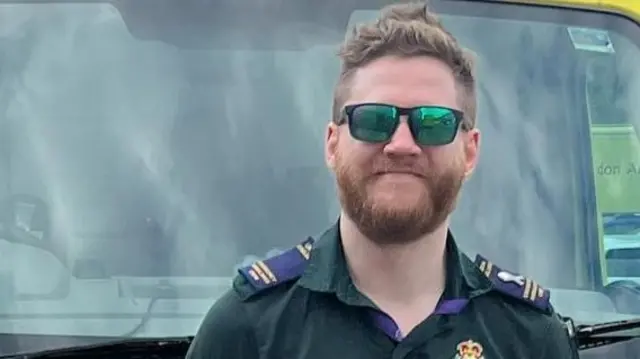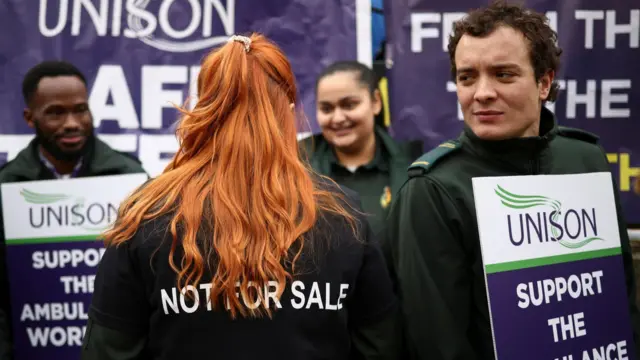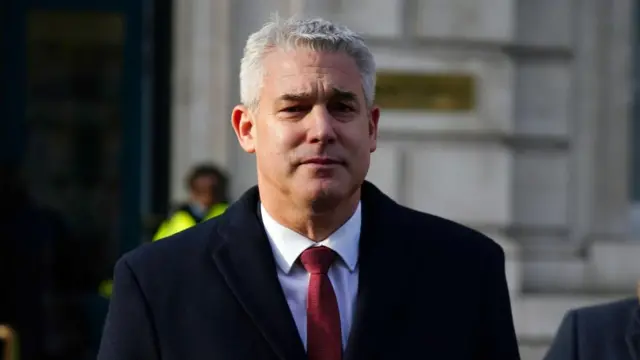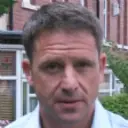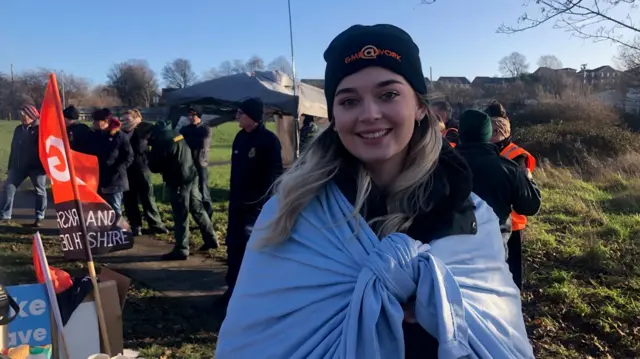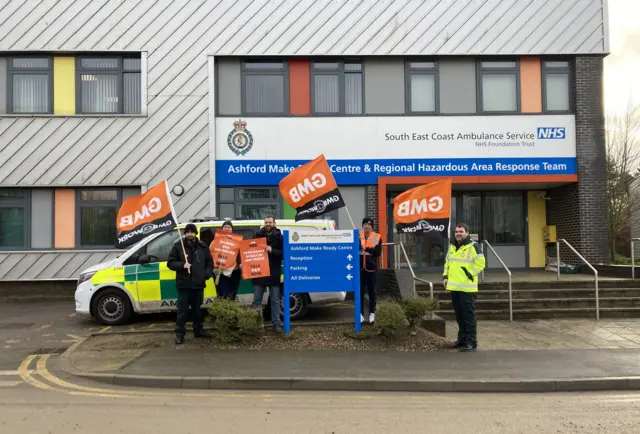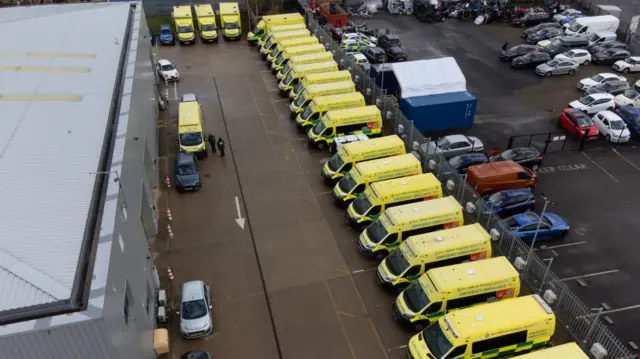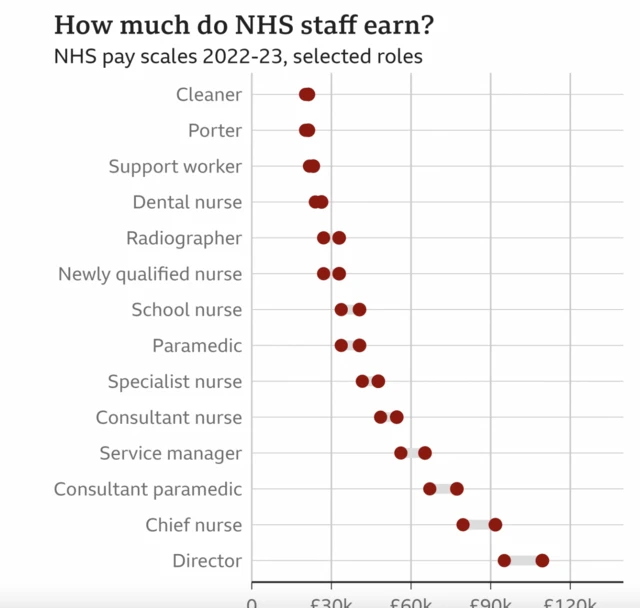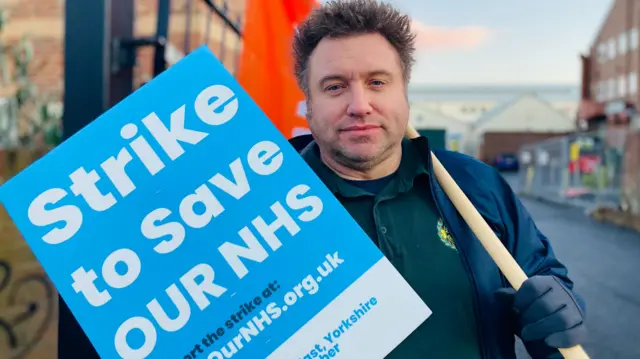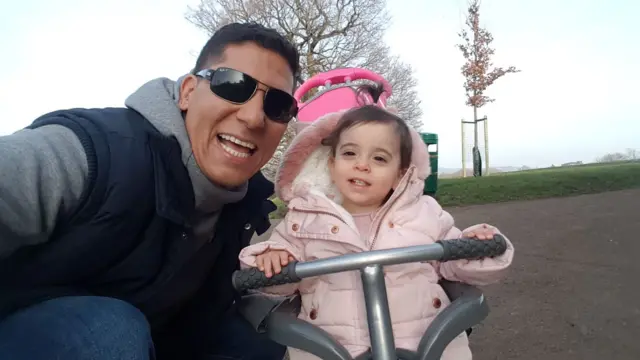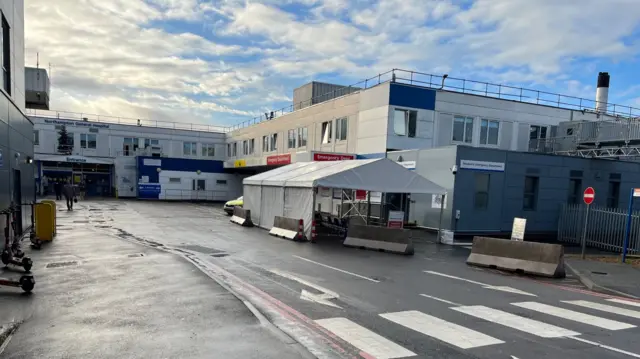Paramedic's concern over responding to calls while on strikepublished at 15:09 GMT 21 December 2022
A young paramedic on a picket line in Cardiff has told the BBC a number of his younger friends have decided not to strike today.
He did not want to give his name, but said some of them were asking: “What’s the point [in striking] if we’re going to have to respond to urgent calls?"
Unions have agreed striking workers can leave picket lines to respond to the most serious, life-threatening calls if necessary.
The paramedic turned up to the strike in his civilian clothing for the same reason - if he was in paramedic uniform he said he’d feel pressured to respond to calls.
